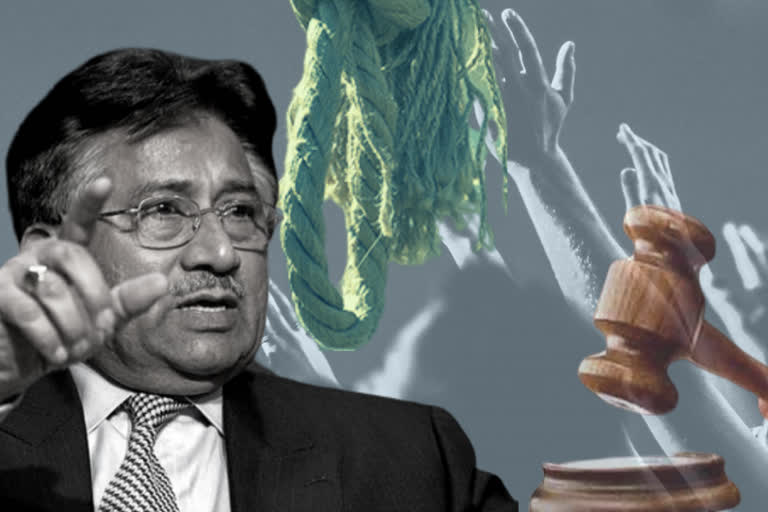Islamabad: The Special Court, which pronounced death sentence to General Pervez Musharraf on Tuesday, has written in its 167-page detailed verdict that the body of the former military dictator would be dragged to and hanged at D-Chowk in Islamabad if he died before the execution of his death sentence.
For the first time in Pakistan's recent history, a special court, earlier this week, handed a death sentence to a former military general in a high treason court.
As per the detailed verdict, cited by Pakistan Today, "The then Corps Commanders Committee in addition to all other uniformed officers who were guarding him each and every time, with boots on, are equally and fully involved in the act and deeds of the accused person."
"As a necessary corollary to what has been observed, we find the accused guilty as per charge. The convict be hanged by his neck till he dies on each count as per charge," the verdict said.
"We direct the law enforcement agencies to strive their level best to apprehend the fugitive/convict and to ensure that the punishment is inflicted as per law and if found dead, his corpse be dragged to the D-Chowk, Islamabad, Pakistan and be hanged for 03 days," it added.
In the brief ruling announced on Tuesday, the three-member bench - headed by Peshawar High Court (PHC) Chief Justice Waqar Ahmad Seth and comprised Justice Nazar Akbar of the Sindh High Court (SHC) and Justice Shahid Karim of the Lahore High Court (LHC) - had found Musharraf guilty under Article 6 of the Constitution.
Article 6 of the Constitution states: "Any person who abrogates or subverts or suspends or hold in abeyance, or attempts or conspires to abrogate or subvert or suspend or hold in abeyance the Constitution by use of force or show force or by any other unconstitutional means shall be guilty of high treason."
Also Read: Special court verdict based on personal vendetta: Musharraf
What is the case
On 3 November 2007, Musharraf suspended the constitution and imposed emergency rule which sparked protests. Later in 2008, he resigned to avoid impeachment threat.
When Nawaz Sharif was elected as prime minister in 2013, he started a treason trial against Musharraf and he was booked on high treason charges in December 2013.
However, Musharraf said that the charges levelled against him were politically motivated. He further argued that his move to impose emergency rule was agreed by the government and cabinet.
Also Read: Musharraf death sentence: Khosa's legacy, old rivalry between judiciary and Army
What Article 6 of Pakistan Constitution says
Any person who abrogates or subverts or suspends or hold in abeyance, or attempts or conspires to abrogate or subvert or suspend or hold in abeyance the Constitution by use of force or show force or by any other unconstitutional means shall be guilty of high treason.
The punishment for high treason is death or life imprisonment, according to the High Treason (Punishment) Act, 1973.



